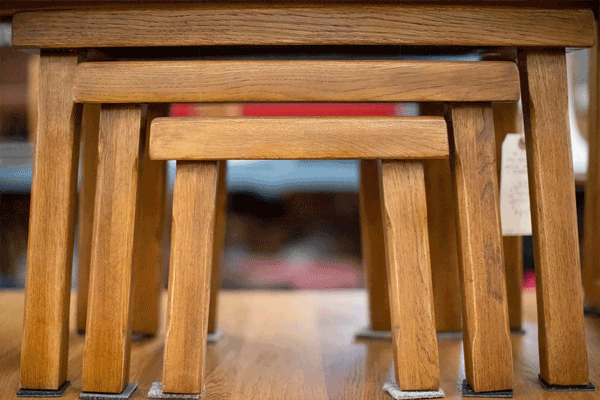Used Cars Can Be a Great Deal for the Smart Shopper
- Share via
Question: Is it still a good idea to buy cars that are 1, 2 or even 3 years old to save a little money? We were offered a 1999 model car with 29,000 miles on it for $15,000. --C.P.B., El Segundo
Answer: Used vehicles can be a great value, because the market price often reflects greater depreciation than is warranted by the mechanical condition of the car or truck in question and the years of service you can expect from it.
With so many cars and trucks coming off leases, more used vehicles than ever are being cycled into the aftermarket. And with vehicle reliability improving across the range of manufacturers, your chances of a satisfying purchase are better than ever.
But it takes time and knowledge to find a good deal. As with everything else--from investing in technology stocks to buying a house--the smart buyer gets a bargain and the uneducated, desperate buyer gets hosed.
The used-car marketplace is a wide-open bazaar of traders, dealers and schemers--but also honest businesspeople and individuals. Last year, the Department of Motor Vehicles reports, 4,582,176 used passenger cars and trucks were bought and sold in California, about two-thirds in private-party transactions.
A few general tips:
* Practiced used-car buyers can spot a hot buy. But for most people, it’s advisable to shop the want ads until you acquire a feel for the prices on your target model. Call a few sellers a week after their ad appears and see if they’ll tell you the price they ended up getting.
* Check the Internet for used-car prices. One of the most authoritative sources is Kelley Blue Book, whose Web site is https://www.kbb.com. Another informative site is the Edmunds used-car price guide at https://www.edmunds.com.
* Buying used embodies the concept of no risk, no gain. You must educate yourself about how to spot a car that has had major body work and thus is likely to have been in a serious accident. A careful inspection may reveal paint over-spray on window gaskets, door handles or other places.
* Consider having a private mechanic examine the vehicle for possible crash damage and to assess its mechanical condition. You’ll want to ensure that fluids are not leaking, the transmission is shifting smoothly and the suspension parts are tight, among many other points.
*
Private-party transactions are where you often find the best buys, although dealers are sometimes just as desperate to dump a car as an individual seller. A BMW dealer, for example, might be stuck with a Hyundai that it just wants to get off the lot.
You have a couple of big advantages in private-party transactions. When you buy a car from its owner, you can size up the person. Does he or she appear to be clean, rational and intelligent--that is, someone who may have taken good care of the car?
A major advantage in a private-party deal is getting the service records, which tell you not only about a car’s service and repair history, but also whether the odometer is accurate. Almost every mechanic or garage lists the odometer reading and date on a service invoice, providing a timeline of the mileage a vehicle has accumulated. The federal government estimates that consumers lose $4 billion annually to odometer fraud, but the calculation is 10 years old and the losses are probably greater today.
When shopping the private resale market and calling about a used car, always say something like: “I’m calling about your used car. What color is it?” Never mention the model. If the seller asks which ad you’re calling about, chances are you’re dealing with a “curbstoner,” somebody who regularly deals in cars.
Never agree to meet a seller anywhere but at his or her home. Con artists often will try to arrange a “convenient” meeting place in a parking lot or offer to bring the car to you. If the car is “hot” or the title is corrupted, you’ll have no recourse if you don’t know who you’re dealing with.
And, obviously, be careful about carrying large sums of cash. It’s better to pay with a certified check or money order.
*
You won’t have these problems at a dealership. You can sample and look at many more vehicles at a used-car lot than by driving around to sellers’ homes all day. You can write a check. And you may have an easier time finding a reputable dealer than trying to judge the character of an individual seller.
I generally don’t put much faith in the multi-point inspection programs touted by many used-car dealers. They won’t tell you anything more than you would get from an inspection by your mechanic. And no mechanic can declare with certainty that a car will not break down next week or next month.
All these pieces of advice are just baby steps. How do you find a good deal? The best deals are on vehicles that are out of favor. You probably won’t get a great deal on a 2-year-old Toyota sport-utility vehicle, because they depreciate relatively slowly. By contrast, late-model Fords, Chryslers and General Motors cars depreciate like rocks falling from El Capitan.
It’s equally important to get a reliable model. Consumer Reports magazine is considered the bible for assessing reliability, but you can certainly look elsewhere for guidance. Family and friends are a good source of advice.
Of course, you’ll hear that Honda and Toyota make reliable cars. But guess what? They aren’t the only ones. You can find great buys in a used Volkswagen or Volvo.
And plenty of motorists swear by their Cadillacs, Plymouths, Buicks and Mercurys.
*
Ralph Vartabedian cannot answer mail personally but responds in this column to automotive questions of general interest. Please do not telephone. Write to Your Wheels, Business Section, Los Angeles Times, 202 W. 1st St., Los Angeles, CA 90012. E-mail: ralph.vartabedian@latimes.com.







